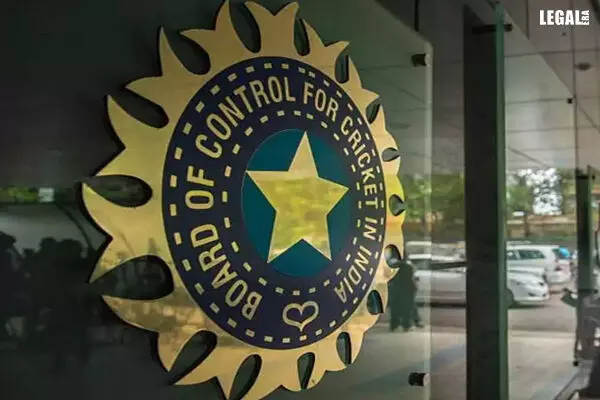- Home
- News
- Articles+
- Aerospace
- AI
- Agriculture
- Alternate Dispute Resolution
- Arbitration & Mediation
- Banking and Finance
- Bankruptcy
- Book Review
- Bribery & Corruption
- Commercial Litigation
- Competition Law
- Conference Reports
- Consumer Products
- Contract
- Corporate Governance
- Corporate Law
- Covid-19
- Cryptocurrency
- Cybersecurity
- Data Protection
- Defence
- Digital Economy
- E-commerce
- Employment Law
- Energy and Natural Resources
- Entertainment and Sports Law
- Environmental Law
- ESG
- FDI
- Food and Beverage
- Gaming
- Health Care
- IBC Diaries
- In Focus
- Inclusion & Diversity
- Insurance Law
- Intellectual Property
- International Law
- IP & Tech Era
- Know the Law
- Labour Laws
- Law & Policy and Regulation
- Litigation
- Litigation Funding
- Manufacturing
- Mergers & Acquisitions
- NFTs
- Privacy
- Private Equity
- Project Finance
- Real Estate
- Risk and Compliance
- Student Corner
- Take On Board
- Tax
- Technology Media and Telecom
- Tributes
- Viewpoint
- Zoom In
- Law Firms
- In-House
- Rankings
- E-Magazine
- Legal Era TV
- Events
- News
- Articles
- Aerospace
- AI
- Agriculture
- Alternate Dispute Resolution
- Arbitration & Mediation
- Banking and Finance
- Bankruptcy
- Book Review
- Bribery & Corruption
- Commercial Litigation
- Competition Law
- Conference Reports
- Consumer Products
- Contract
- Corporate Governance
- Corporate Law
- Covid-19
- Cryptocurrency
- Cybersecurity
- Data Protection
- Defence
- Digital Economy
- E-commerce
- Employment Law
- Energy and Natural Resources
- Entertainment and Sports Law
- Environmental Law
- ESG
- FDI
- Food and Beverage
- Gaming
- Health Care
- IBC Diaries
- In Focus
- Inclusion & Diversity
- Insurance Law
- Intellectual Property
- International Law
- IP & Tech Era
- Know the Law
- Labour Laws
- Law & Policy and Regulation
- Litigation
- Litigation Funding
- Manufacturing
- Mergers & Acquisitions
- NFTs
- Privacy
- Private Equity
- Project Finance
- Real Estate
- Risk and Compliance
- Student Corner
- Take On Board
- Tax
- Technology Media and Telecom
- Tributes
- Viewpoint
- Zoom In
- Law Firms
- In-House
- Rankings
- E-Magazine
- Legal Era TV
- Events
Bombay High Court Quashes IT Department’s Communication On BCCI’s Tax Exemption Status

Bombay High Court Quashes IT Department’s Communication On BCCI’s Tax Exemption Status
The Bombay High Court on Tuesday set aside a communication issued by the Income Tax (IT) Department concerning the tax exemption status of the Board of Control for Cricket in India (BCCI) under Section 12A of the Income Tax Act. The ruling came in response to BCCI's plea challenging the department's position on its tax-exempt status.
BCCI had been granted tax exemption on February 12, 1996. However, it modified its Memorandum of Association on two occasions—on June 1, 2006, and August 21, 2007—without informing the tax authorities. This led the Director of Income-tax (Exemptions) to issue a communication on December 28, 2009, asserting that BCCI’s tax-exempt status "does not survive from the date on which the objects were changed, i.e., June 1, 2006." The department further stated that BCCI could file a fresh application for registration along with the necessary documents.
A bench of Justices M S Sonak and Jitendra Jain quashed the IT Department’s communication, considering the department’s own stance that the communication did not amount to a formal withdrawal of BCCI’s registration. The Court held that the Revenue could not have issued such an advisory or non-statutory communication and then proceeded as if BCCI’s exemption status had been revoked.
“The impugned communication/order dated December 28, 2009, cannot be non-statutory or advisory in nature while simultaneously defeating an assessee’s right of appeal. The assessee’s rights cannot be affected, nor can a situation be created where it cannot claim exemption or is deemed to have lost its registration,” the Court stated.
The High Court, however, did not rule on the merits of the case, clarifying that issues concerning BCCI’s tax exemption or potential cancellation of registration must be decided by the appropriate statutory authorities under the prescribed legal framework.
Earlier, the Income Tax Appellate Tribunal (ITAT) had ruled that BCCI’s plea was not maintainable, as the IT Department had insisted that its communication did not amount to a cancellation of registration. Despite this, the ITAT proceeded to examine the communication on its merits and agreed with the department’s view. This prompted BCCI to approach the High Court.
The Court observed that after accepting the IT Department’s stance regarding the nature of the communication, the ITAT had exceeded its jurisdiction by evaluating the communication’s merits and making observations that supported the department’s position.
"Such observations/findings are beyond the ITAT’s jurisdiction and cannot be relied upon by the respondents in any proceedings related to BCCI’s assessment or the potential cancellation of its registration under Section 12A of the Income Tax Act," the Court held.
It further directed that all such issues, including whether BCCI’s modification of its objectives warrants cancellation of registration or whether it remains entitled to benefits granted to charitable institutions, must be examined independently by the authorities without being influenced by the ITAT’s findings.


